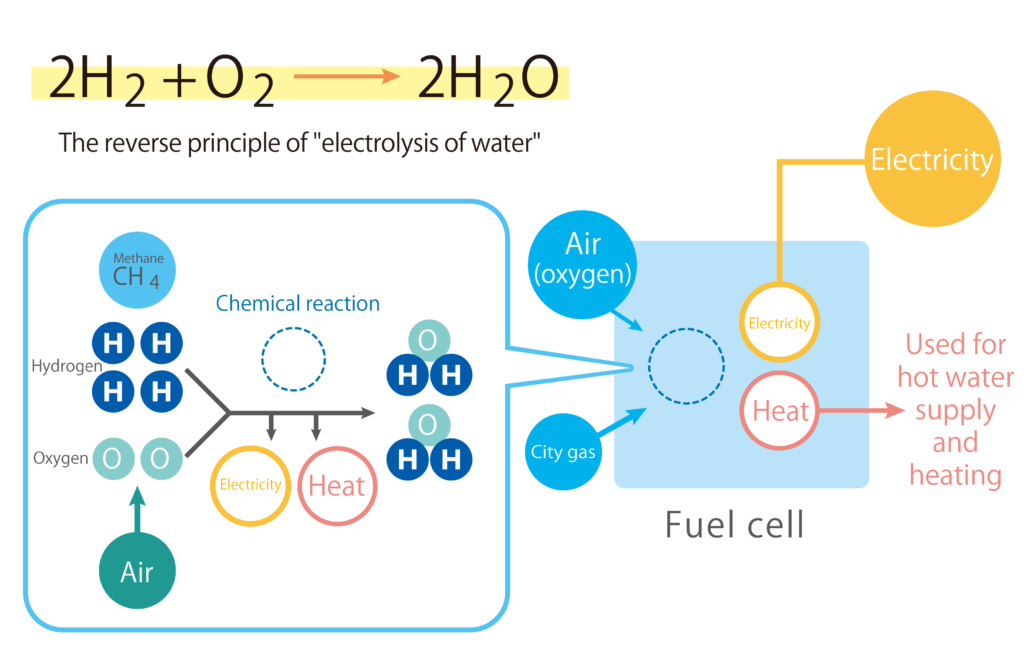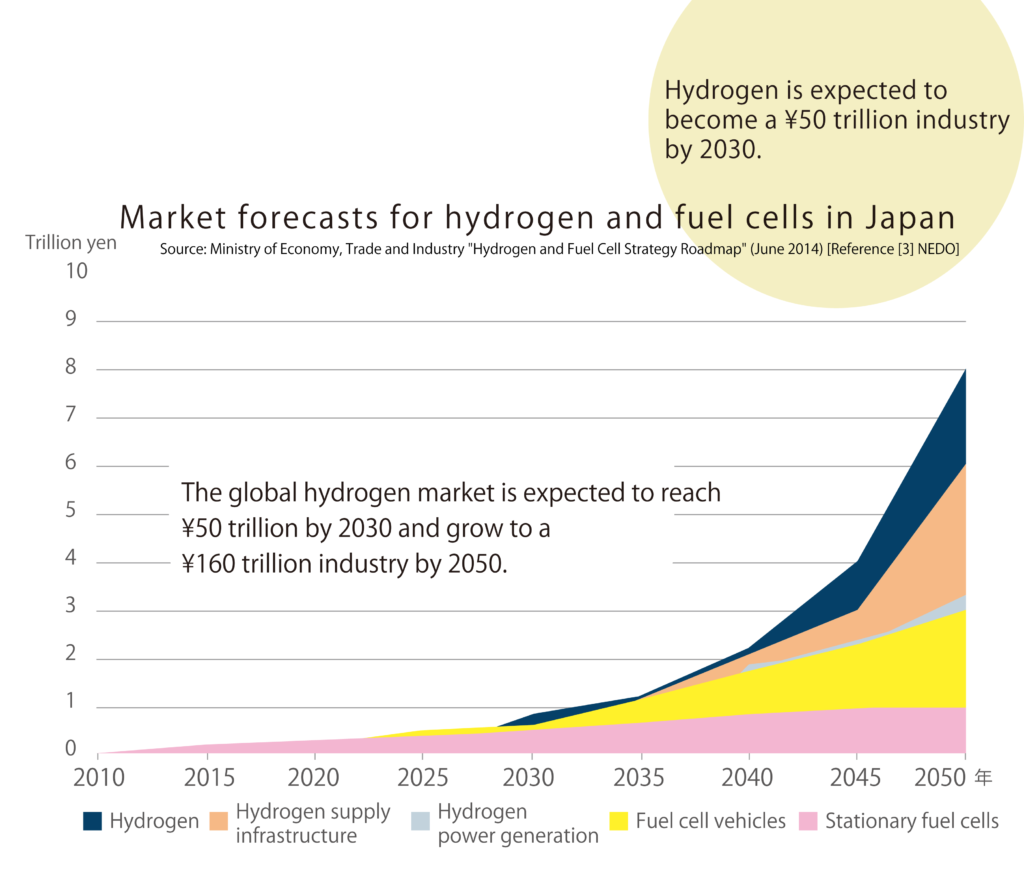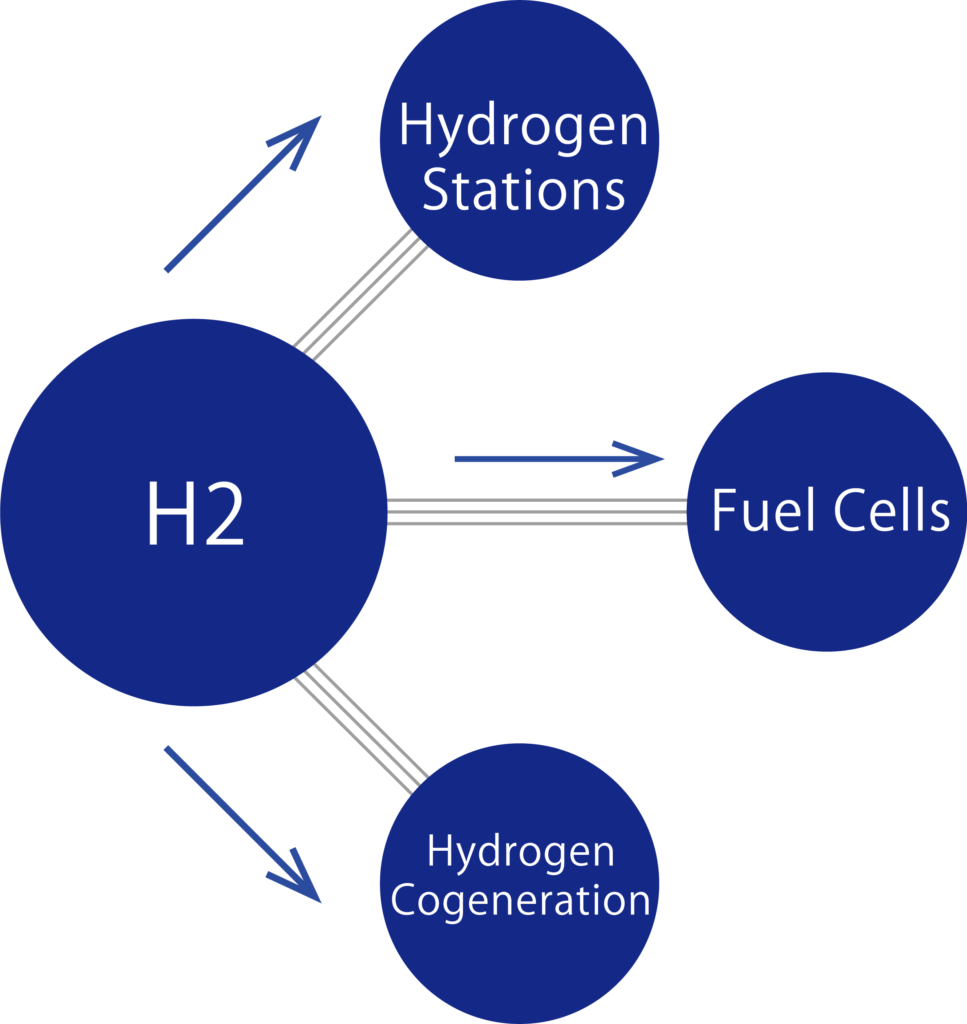Main Menu
Main Menu
- Resource Regeneration -
Hydrogen Energy Generation and Diverse Applications
Challenges and Solutions | Circular Economy | Regeneration | Hydrogen Energy Generation and Diverse Applications
Next-Generation Energy: Hydrogen
The Mechanism of Generating Electricity and Heat Using Fuel Cells
Hydrogen Produced During the Manufacturing Process Without CO2 Emissions


A fuel cell is an electricity generation device that utilizes the reverse principle of water electrolysis to produce electricity.
Fuel cells, despite being commonly mistaken as a type of battery due to their name, are, in fact, electricity generation devices that use the reverse principle of water electrolysis to produce electricity by reacting hydrogen with oxygen, resulting in the generation of electricity and water. Unlike battery-based power generation, which requires charging, fuel cells will continue to generate electricity as long as fuel (hydrogen and oxygen) is supplied. They have even been used successfully in spacecraft. One of the significant advantages of fuel cells is that they can continuously generate power as long as you provide them with hydrogen and oxygen, and they produce water as a byproduct, which can be used as drinking water. In other words, as long as you can ensure a supply of hydrogen, you can generate power, especially on Earth, where you can utilize the oxygen in the air.
Elements of Hydrogen

What Exactly Is a Hydrogen Station?
A Hub for Hydrogen Refueling
Not Limited to Carbon Vehicles

Vehicles: Hydrogen stations are the primary locations for supplying hydrogen fuel to fuel cell vehicles (hydrogen fuel cell vehicles, FCVs). This enables vehicles to use hydrogen as fuel to generate electricity, emitting only water as a byproduct, making it an exceptionally clean mode of transportation.
Industrial Applications: Hydrogen is also utilized as industrial energy, and hydrogen stations play a crucial role in industrial processes.
The Supplied Fuel Cells Generate
More Than Just Electricity

Supply of Thermal Energy: Hydrogen can also produce thermal energy using fuel cells. It is utilized for various applications requiring heat energy, such as heating and industrial processes.
Backup Power: Hydrogen fuel cells can serve as backup power sources, particularly in emergency situations. Fuel cell power plants with hydrogen stations are installed in locations where a steady power supply is essential.
Hydrogen Cogeneration in Urban Areas
as a Clean Energy System

Utilizing Hydrogen as an Energy Source for Simultaneous Electricity and Heat Generation
This process involves the use of hydrogen as an energy source, simultaneously generating both electricity and heat. Built upon hydrogen fuel cell technology, it is a next-generation clean energy system that emits absolutely no CO2, garnering significant attention.
Turbine Drive: Thermal energy is transformed through high-temperature, high-pressure steam driving turbine blades. The rotation of the turbine drives a generator, producing electricity. This thermal energy can be utilized for various applications such as heating and hot water supply. As a result, dual utilization of energy becomes possible, enhancing the overall efficiency of the system.
Your participation will save the Earth.
We are seeking like-minded companies to join us.
Through our cutting-edge technology, we can transform organic materials, the source of life, into renewable energy, hydrogen, without disposing of them. This project allows us to establish a circular economy, maintaining the inherent nature of organic materials in a sustainable and effortless manner.
The conventional approach to waste management, primarily focused on physical processes like incineration, has proven ineffective in reducing CO2 emissions over the years and has kept us trapped in the mindset that “waste equals trash.”
We are here to fundamentally change that perception.
© BIOTECHWORKS-H2®


